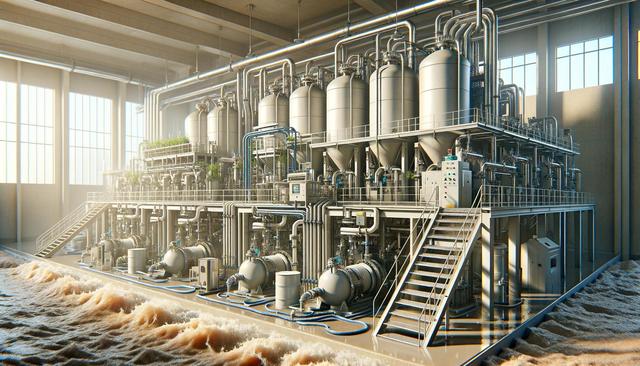Understanding the Role of Filter Press Systems in Sludge Dewatering
Sludge dewatering is a critical part of many industrial and municipal wastewater treatment processes. Filter press systems have become one of the most effective methods for achieving high-efficiency dewatering by separating solids from liquids in sludge. These systems operate by pumping sludge into a series of filter plates, which are then compressed to squeeze out the water, leaving behind a solid ‘cake.’ This process significantly reduces the volume of waste, making it easier and more cost-effective to handle and dispose of.
Compared to other dewatering technologies, filter presses stand out for their capacity to produce drier cakes, which means reduced transportation weight and lower disposal fees. Their versatility also makes them suitable for a wide range of applications, including chemical manufacturing, food processing, pharmaceuticals, and mining. The adaptability of filter press systems ensures they can meet the specific needs of various industries while maintaining consistent performance.
Operational Advantages of Filter Press Systems
Filter press systems offer numerous operational benefits that contribute to their growing popularity in sludge management. One of the key advantages is their relatively low energy consumption, especially when compared to centrifuges or thermal drying methods. This makes them a more sustainable option for facilities looking to minimize their carbon footprint.
Additional advantages include:
- High solids capture rate, often exceeding 99%
- Customizable design options to suit different sludge characteristics
- Reduced odor and improved hygiene in the dewatering area
- Lower maintenance requirements due to fewer moving parts
These features not only enhance efficiency but also lead to improved overall plant performance. With proper operation and routine maintenance, filter press systems can operate reliably for many years, providing long-term cost savings and reduced environmental impact.
Integration and Automation in Modern Dewatering Processes
Modern filter press systems are increasingly integrated with automated controls and monitoring technologies. Automation simplifies operations, reduces the need for manual labor, and ensures consistent dewatering results. Real-time sensors and programmable logic controllers (PLCs) can monitor parameters such as pressure, flow rate, and cake dryness, allowing operators to make data-driven adjustments on the fly.
Some advanced systems even include remote access capabilities, enabling plant managers to oversee operations from off-site locations. This is particularly beneficial for facilities operating multiple treatment sites or for those seeking to enhance operational transparency. The use of automation also supports predictive maintenance, helping avoid unexpected downtime and extending equipment lifespan.
Sustainability and Environmental Impact
One of the most compelling reasons to invest in filter press technology is its contribution to environmental sustainability. By reducing the volume of sludge that needs to be transported and disposed of, these systems lower fuel consumption and greenhouse gas emissions. Additionally, the high-quality filtrate produced can often be treated and reused within the facility, further conserving water resources.
Industries that adopt filter press systems for sludge dewatering can also benefit from improved compliance with environmental regulations. Dry sludge cake is easier to store and less likely to cause leachate-related issues, reducing the risk of soil and groundwater contamination. In many regions, this aligns with local and national efforts to support circular economy initiatives and reduce landfill dependency.
Key Considerations for Implementation
When implementing a filter press system, several factors must be considered to ensure optimal performance. The first is understanding the specific sludge characteristics, including its composition, consistency, and the presence of any chemicals or contaminants. This information will determine the type of filter media and system configuration needed.
Other important considerations include:
- Available space and infrastructure at the facility
- Desired level of automation and monitoring
- Operational and maintenance budget
- Long-term sustainability goals
Working with experienced engineers and suppliers can help customize a solution that balances efficiency, cost, and environmental impact. Pilot testing is also recommended to validate system performance under real operating conditions before full-scale deployment.
Conclusion: Enhancing Efficiency and Sustainability Through Advanced Dewatering
Filter press systems offer a highly effective approach for advanced sludge dewatering, making them a valuable asset for industries aiming to optimize waste management. By significantly reducing sludge volume, lowering disposal costs, and supporting sustainable practices, these systems align with both operational and environmental goals. Facilities that invest in modern, automated filter press technology can benefit from improved efficiency, enhanced compliance, and a reduced environmental footprint. As regulatory and sustainability pressures continue to grow, adopting reliable sludge dewatering solutions becomes not just beneficial—but essential.




Leave a Reply